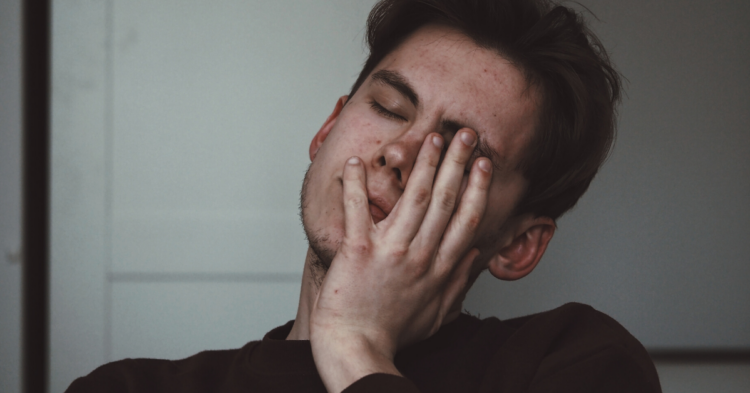Monday mornings can come with an unavoidable feeling of exhaustion, like finding a toy in the bottom of your cereal, but that toy is a bill you need to pay. This is because for a lot of people, work is simply a means to an end, and at times where people worldwide are being dangerously overworked, a condition called ‘burn-out’ can lead to very real negative health conditions.
Burn-out is a common phenomenon in today’s society.

Feelings of being downtrodden on a daily basis and general exhaustion are factors that you may experience if you are suffering from burn-out. Most likely, at some point in your life, you have experienced these feelings due to work-based pressure. Well, now the concept of burn-out is thankfully being taken more seriously.
Burn-out is now recognized by the World Heath Organisation.

The World Health Organisation (WHO) has now added burn-out to its list of diseases or International Classification of Diseases (ICD-11), and has provided a definition for the term.
The WHO defined burn-out as, “a syndrome conceptualized as resulting from chronic workplace stress that has not been successfully managed.”
The decision to add this condition to the ICD-11 list was announced at a meeting of the World Health Assembly in Geneva earlier this year.
The WHO characterized the condition by three key dimensions:

Burn-out’s three main dimensions on the WHO’s website are described as:
“1) feelings of energy depletion or exhaustion; 2) increased mental distance from one’s job, or feelings of negativism or cynicism related to one’s job; and 3) reduced professional efficacy. Burn-out refers specifically to phenomena in the occupational context and should not be applied to describe experiences in other areas of life.”
The world is currently rife with the negative impacts of workplace stress.

In 2018, the UK alone had some 595,000 people suffering from workplace stress, according to the BBC . In addition to this, South Korea currently has suicide rates of around 30 people per day with business men and politicians being amongst the most common, which a New York Times article attributes to the fact that the entire country is widely stressed to a near breaking point.
There are hopes that burn-out being recognised by the WHO will lead to changes in laws worldwide.

In particular, there are hopes that China will begin to adopt more fair labor practices. This is due to the fact that China no longer has a 9-5 work ethic, but has a ‘996’ ideology. ‘996’ refers to working hours that are 9 a.m. to 9 p.m. 6 days a week, according to Vice .
996 work hours can lead to immense amounts of stress and exhaustion and can end up putting people in hospital.
It is important to recognize the symptoms of burn-out.

No one should have to suffer alone during periods of intense stress. And, with people working extremely demanding jobs, or multiple jobs in order to provide for their family, it is important to not only keep an eye on your own health but on the health of those around you.
Thankfully, the stigma around mental health is slowly being removed. There is no shame in asking for help when you are struggling, and talking to loved ones and/or medical professionals can work wonders to help reduce your stress levels and improve your mental health.
Healthcare professionals have been offering suggestions about how to treat the condition.

Siobhán Murray, a psychotherapist from Dublin, recently released a book on the topic of burn-out, called “The Burnout Solution: 12 weeks to a calmer you”.
“Stress is really important, and anxiety is what motivates us to do well. It’s when we’re continually exposed to stress and anxiety, that we’re not letting go, that it starts to turn into burnout,” Murray told the BBC .
Murray also went on to say that people should be wary of bad habits beginning to dominate your life. For instance, be wary of increased drinking or eating sugary snacks. And, ultimately, you should seek help from a medical professional who is able to distinguish between depression and burnout.
The WHO also made a few other changes to their information along with recognizing burn-out.

The WHO decided to stop classifying gender nonconformity as a mental health concern. Instead, gender nonconformity is addressed in relation to sexual health. This was received as a massive victory for transgender activists.
Also, the WHO chose to classify video game addiction as an official disorder. This received some opposition from video game enthusiasts. However, CEO of an Indian not-for-profit mental health organization, Manoj Chandran, released this statement about the decision according to Vice :
“It’s not that gaming isn’t good; that’s like saying watching TV is not good […] But now that it’s been classified by the WHO as a disease, people have the knowledge that it can be a problem and once you have this knowledge, you can shape yourself and your capabilities towards not becoming addicted and affecting your loved ones.”
Hopefully, people will now be able to recognize and treat burn-out symptoms better.

With suicide rates increasing across the US and being the fourth leading cause of death for people ages 35 to 54 according to the American Psychological Association , anything that we can do as a society to recognise the stress factors which may lead to someone taking their own life should be taken incredibly seriously.
h/t: Vice & New York Times

















































